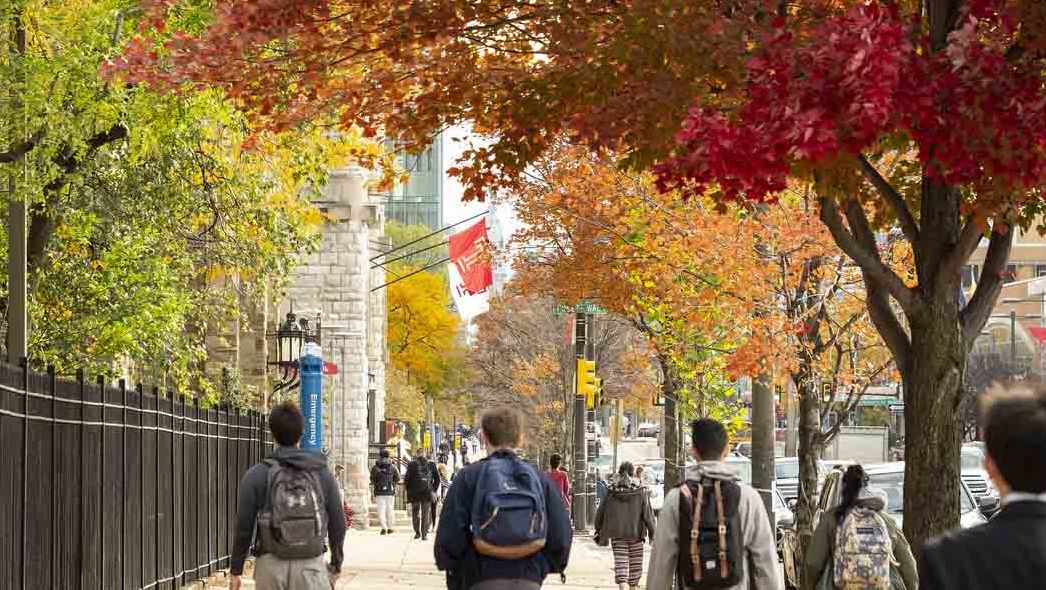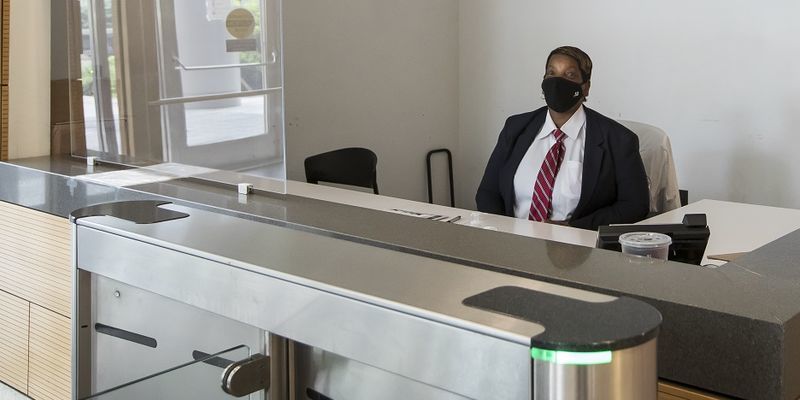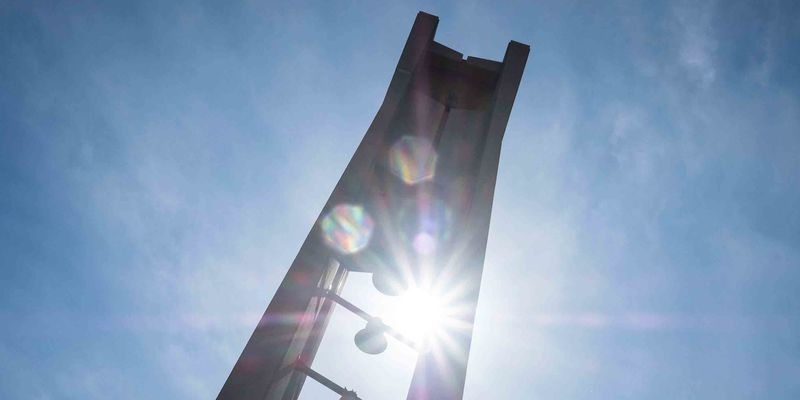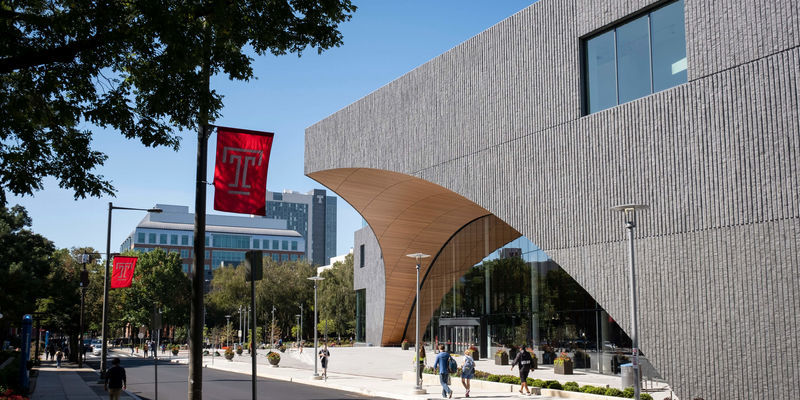Return to campus FAQs: Employee edition
Here are answers to your frequently asked questions.

As we continue to make plans to prepare for a return to campus this fall, many questions have emerged. Here, you’ll find answers to some of the most frequently asked questions.
For additional information, you may consult temple.edu/coronavirus and use the TUportal “Return to Campus” tab to stay informed. (You'll need your Temple login information to view documents on TUportal.)
Will everyone on campus be tested?
No. The Centers for Disease Control and Prevention recently advised universities against testing all students. However, Student and Employee Health Services have been testing for the virus since testing materials became available, and that work is continuing.
The university’s testing operation will be enhanced by moving the test site from 1700 N. Broad St. to a space on the street level of Morgan Hall along Cecil B. Moore Avenue. With its own entrance and a new reservation system, the site will provide local testing of Temple students and employees. It will also have capabilities for in-house rapid testing that provides results in just 15 minutes.
Rapid testing will be prioritized for students, faculty and staff who are symptomatic with COVID-19 and their close contacts. Student and Employee Health Services will also conduct regular screening and testing of those in the Temple community who may not have symptoms but are at high-risk. Regular testing of individuals who are in frequent contact with others will help to identify “hot spots” and will enable Health Services to act quickly to limit the ability of the virus to spread.
Learn more about the testing center.
What should I do if I have come into contact with someone who tested positive or is experiencing symptoms?
If you are concerned that you have been exposed to COVID-19, you should contact Employee Health Services for a screening over the phone. They will ask you some questions to determine your risk factors and may direct you to self-quarantine or get tested.
If an employee tests positive, will their close contacts be informed?
Yes. Our enhanced rapid testing capabilities enable us to identify COVID-19-positive students, faculty and staff, and then quickly start the contact-tracing process.
Working with the PDPH, Temple Student and Employee Health Services will contact all individuals who have been in close contact with any campus member who tests positive for COVID-19, and provide those individuals with the information and guidance they need to protect their health and safety.
How are you handling elevators and other common areas?
Temple’s Office of Facilities Management is currently evaluating how common areas on campus, including spaces like elevators, can be used safely during the fall semester. Upon completion of this evaluation, recommendations will be made about how many individuals may use common areas at the same time while complying with the university’s six-foot physical distancing guideline. Signs will be posted across campus so that everyone is aware of the recommendations and can be proactive in safeguarding their health and the health of others.
For example, you might see signage indicating that a stairwell is one-way only or that a maximum of two or four people may use an elevator, depending on the elevator size. You will also notice reminders to wear face coverings and practice good hand hygiene, which may include the use of hand sanitizer. These reminders will help to be more aware of our behaviors and reinforce the importance of protecting everyone’s health and safety.
Additionally, common areas will be cleaned and disinfected daily using EPA- and CDC-approved cleaning products.
What are some of the other changes on campus that employees and students can expect to see?
New signs are a big part of what’s new on campus. You will see signs focusing on our four pillars of public health: face coverings, hand hygiene, physical distancing and health monitoring. You’ll see floor decals in places to help you maintain a six-foot distance from others. You’ll be seeing a lot of plexiglass shields in public areas as well.
In classrooms, you’ll notice limited seating, which will be pre-established, and there will be lots of space between them. For example, if there are 10 people in a class, there will be 10 places for them to sit, positioned at least six feet apart with no other options available. If it’s a lecture hall, there will be indications of where students can and cannot sit in order to maintain that appropriate physical distance.
Among other changes, lobbies will have hand sanitizing stations and restrooms will be equipped with touchless faucets.
Will all employees be expected to return to work on campus?
No. Employees will not be permitted to return to any on-campus work location until the appropriate health and safety measures have been implemented. Once measures have been put in place, employees will begin to return in phases. Managers and supervisors will make decisions about who will return during each phase and will provide appropriate notice to returning employees.
However, COVID-19 has brought with it new concerns regarding personal health and some employees may require special accommodations to safely complete work. If you have an underlying medical condition that may make you vulnerable or other special circumstances, you should notify your supervisor and Human Resources.
Because keeping the number of people on campus as low as possible is a key component of our campus safety plan, employees who can perform their job effectively from a remote location all or part of the time may be able to continue to do so.
For more detailed information on the phased return, consult the Return to Campus Guide for Temple Staff and Faculty.
What should I do if I experience symptoms?
If you are experiencing COVID-19 symptoms—such as cough, fever, shortness of breath, muscle pain, headache, chills, sore throat, or loss of taste or smell— you should not report to work. The same holds for those who have been in close contact with others who show symptoms or who are engaging in self-quarantine at the direction of the PDPH or their healthcare professional. In these cases, you will not be penalized for your absence.
In addition, anyone with symptoms should contact Temple Health Services to be screened and tested appropriately, and so that contact tracing may begin, if needed.
I know international travel is not recommended, but I’m traveling domestically; what do I need to do?
In light of significant COVID-19 outbreaks in various sections of the U.S., Temple University will not authorize domestic travel to those areas listed here. Anyone who travels to these areas on their own is advised to self-quarantine for two weeks after returning to the Philadelphia area.
For your own safety, you may wish to consult the travel guidelines of reputable international and federal agencies and current federal quarantines. And you should stay up to date on all of the university’s travel restrictions related to COVID-19 .


